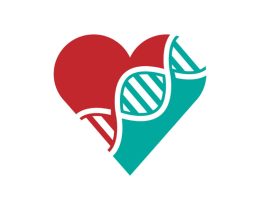
After having a heart attack, people with autoimmune disease are more likely than others to die or experience further serious heart problems, including a second heart attack, new research finds.
The study, published Wednesday in the Journal of the American Heart Association, helps fill a gap in what’s known about the long-term cardiovascular health of people with autoimmune diseases such as rheumatoid arthritis, psoriasis and lupus, researchers say.
“The evidence about the risk of adverse events after heart attack for people with autoimmune disorders is less robust than evidence for people without these disorders, and mainly from small or single-center studies,” senior study author Dr. Amgad Mentias said in a news release. He is an assistant professor of medicine at the Cleveland Clinic Lerner College of Medicine in Ohio.
According to estimates from the National Institutes of Health, up to 8% of people in the U.S. have an autoimmune disease, in which the immune system attacks the body’s own organs, tissues and cells.
The study used 2014-2019 data for people 65 and older from a government database of all inpatient Medicare hospital bills in the U.S. The researchers matched records for 59,820 heart attack patients who had inflammation-causing autoimmune disorders with records of 178,547 heart attack patients without the autoimmune conditions.
Patients were followed for about two years after their heart attacks. Their most common autoimmune conditions were rheumatoid arthritis, followed by systemic lupus, psoriasis, systemic sclerosis and myositis/dermatomyositis.
The analysis showed that after a heart attack, people who had an autoimmune disease were 15% more likely to die from any cause than those who didn’t have an autoimmune condition. They were 12% more likely to be hospitalized for heart failure and 8% more likely to have another heart attack. They were also 6% more likely to have a second procedure to open their arteries if they had one following their heart attack.
Patients with autoimmune disease and cardiovascular disorders should be managed by a cardio-rheumatologist working with a rheumatologist, lead study author Dr. Heba Wassif said in the release. Wassif is an assistant professor of medicine at the Cleveland Clinic Lerner College of Medicine and director of cardio-rheumatology at Cleveland Clinic.
Autoimmune diseases are known to increase the risk for cardiovascular disease, perhaps because people who have them also tend to have more traditional cardiovascular risk factors, including high blood pressure, Type 2 diabetes and kidney disease. And, because of their autoimmune disease, people typically have chronic inflammation and autoimmune antibodies and commonly use steroid medications, all of which have been associated with higher cardiovascular disease risks.
“Traditional (cardiovascular disease) risk factors are accentuated in this population, and how these risk factors manifest is also unique,” Wassif said. “For example, cholesterol levels are affected by inflammation. Therefore patients with active inflammatory disease have lower levels of cholesterol, a phenomenon known as the lipid paradox. Physical activity, which is highly recommended to improve cardiovascular outcomes, may be limited by joint pain.”
Also, some autoimmune disease treatments may increase risk, she said. “Knowledge of these nuances and a team-based approach may improve outcomes.”
In the study, people with an autoimmune disease were less likely to have a procedure called a heart catheterization to examine narrowed arteries. They also were less likely to undergo bypass surgery or a procedure to open obstructed arteries.
Researchers lacked information about the anatomy of patients’ arteries and the severity of their autoimmune diseases that might have helped them understand treatment decision-making.
“It is possible that the people with an autoimmune disease were not healthy enough to undergo those procedures, or their coronary anatomy was less amenable to interventions to reopen narrowed or clogged vessels,” Mentias said. Such issues may place them at higher risk of procedure-related complications.
“When feasible, however, if someone is a suitable candidate, these procedures should be considered as options,” he said. “The presence of autoimmune disease by itself should not preclude someone from potentially lifesaving procedures.”
If you have questions or comments about this American Heart Association News story, please email [email protected].







